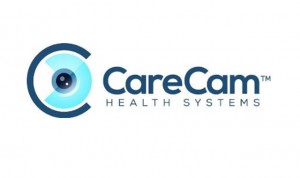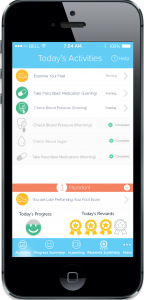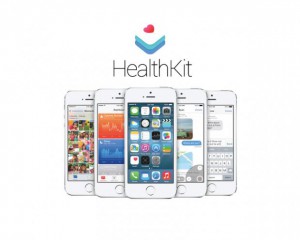James R. Brunetto
Autonomous Attack Aircraft

For my disruptive innovation case I had the topic of autonomous vehicles. In an article I found on justsecurity.org, Michael Horowitz and Paul Scharre discuss three areas of concern related to fully autonomous aircraft. First area of concern is related to accountability. If autonomous aircraft fail to do their job properly, who’s at fault? Another issue is the off-loading of moral responsibility for killing, which could lead to unnecessary deaths. Finally, if an autonomous aircraft became out of control, there could be serious damage inflicted to innocent people or casualties to friendly fire. Because of these concerns, many people advocate a level of human control over these aircraft because humans can make better informed decisions for a particular situation. Because of this, there is a debate over what is the right amount of autonomy and human control.
How much human control do you think is necessary and what functions should be autonomous in an attack aircraft? Or, do you think it is possible to have a fully autonomous attack aircraft? If yes, how would you mitigate the concerns mentioned above?
CareCam Health Systems and Mobile Health Monitoring
After hearing the disruptive innovation case on mobile health monitoring, I found this article about a company I interned for called CareCam Health Systems. CareCam is a company out of Conshohocken, PA that has developed a mobile healthcare application that is intended to improve the care and health of people with chronic health conditions. This application allows physicians to create care plans for patients to follow during their day. It also utilizes video and still images so that physicians can verify that patients are following their care plans. This application also sends out alerts to care managers and physicians if patients don’t complete certain care plan activities at their designated times or if their health is trending the wrong direction. Hal Rosenbluth, Chairman and CEO of CareCam Health Systems, believes that if this application is properly utilized, people with chronic diseases would have better overall health, which would reduce doctor visits, which would in turn save people money. Recently CareCam received a $2.4 million investment from IBC and this application is set to go live in April of this year.
Do you see this application as a disruptive innovation in the health care industry? If so what parts of the industry do you see it disrupting? If you don’t see it as a disruptive innovation, where do you it fitting into the industry? What other areas in health could this application be utilized for in the future? For example, CareCam could also further develop the application to be used to monitor clinical trials of pharmaceuticals.
Nvidia plays Shield console as Netflix for games
After the presentation on Tuesday involving video games/consoles, I thought this product was worth mentioning. In this article, Benny Evangelista, talks about Nvidia’s new console know as Shield. Priced at $199, Shield is described as “part smart TV, part game console, and part Netflix.” With an emphasis on gaming, Shield aims to stream video games the same way the Netflix streams videos. This would allow gamers to play instantly instead of waiting for hundreds of GB to download and plan to have 50 on-demand games by its launch date in May. Nvidia believes that with Sheild’s processor, it will be able to play games better than current video game consoles. Along with this, Shield will also have voice-controlled Android TV and will stream ultra HD online movies and video, play music, and display digital photos and running apps. With all these features, Nvidia hopes to make current video game consoles like PlayStation and Xbox obsolete. While also competing with streaming media devices like Apple and Roku.
Do you think that Nvidia’s Shield console has the ability disrupt the current video game console market and/or the streaming media device market? What suggestions/actions do you think companies in these markets should do to hinder Shield from gaining a share of the market?
Disaster Recovery
During class last week we talked about how all businesses with data centers in the World Trade Center went out of business within 5 years after the September 11 attacks. This got me curious about commonly forgotten/overlooked things when businesses are building disaster recovery plans. In this article from VMWare, the author describes the ten most forgotten things when businesses are building disaster recovery plans. One that I found extremely important was forgetting to test recovery plans. Companies come up with great plans for what they are going to do but they don’t take the time to test them, which doesn’t allow employees to see if their plans actually work or if their intended plans create other problems.
Have any of worked on making recovery plans at an internship or job? Which items from the article do you think are the most important? Do you think there are any items missing from the list?
Cybersecurity Order
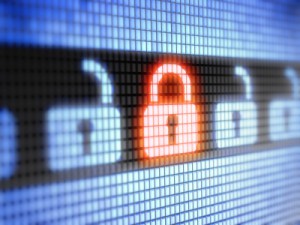
I have seen a couple posts relating to cyber security so I thought this article was worth sharing. An article by U.S. news stated that this past week, President Obama signed an executive order that promotes the sharing of cyber security information between businesses in the private sector. This executive order hopes that information sharing between companies leads to analysis which could improve the abilities of companies to detect and protect against cyber threats. This would hopefully lead to improved protection of people’s personal information. There is also proposed legislation by Obama that would encourage companies to share data with the government to improve cyber security.
Although the idea of this is to improve cyber security, do you think customers of the companies involved in information sharing would have a problem/be worried about other companies having access to some of their information? What about sharing between companies and government? What do you recommend companies do to ease customer’s worries?
Apple HealthKit
I was doing some research on healthcare management and found this article on Apple’s HealthKit application. This application allows patients to input personal data, such as weight, blood glucose, heart rate and blood pressure. This information is transmitted through the cloud to healthcare providers. This can then be utilized to catch early indicators of disease and allow healthcare providers to treat an issue before it becomes more serious. This will ultimately lead to improved survival rates. Other areas of the medical industry utilizing this type of technology include assisted living, home monitoring, and clinical trials. One of the problems with this type of technology is data security. Because it uses cloud storage to improve its connectivity and data sharing, there is a serious threat to theft and data manipulation.
Personally I find this interesting because of the benefits this could provide. Over time, this data can be used to establish trends which would allow health professionals to determine what activities/actions lead to certain health outcomes. I also think it could allow for better health insurance pricing. For example, if you had two people on diabetes management plans, health insurance providers could see which customers are following their health plan and which ones aren’t. The idea here being that people who are compliant with their health plans will use fewer medical services, leading to a reduction in spending on medical services. Health insurance providers could then adjust payments based on health plan compliance.
Outside of benefits mentioned in the article, what benefits do you see from using Apple’s HealthKit? Is there any technology that could be used in conjunction with this? Do you have any suggestions for solving this data security problem? Do you see any other threats to healthcare data security as a result of cloud storage?
The internet: Commodity or Utility?
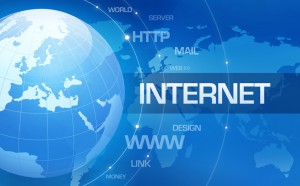
In this article, the author talks about what the internet should be classified as, a commodity or utility. Currently, the internet is classified as an “information service” which is governed under the Title I of the Communications Act. This means internet service providers have less of a regulatory burden than that of “telecommunication service” providers. Which are governed under Title II of the Communications Act. If the internet is classified as a utility, it would be heavily regulated and their services would be dispersed evenly between all customers. If the internet were to be classified as a commodity, the pricing and availability would be controlled by supply and demand rather than federal authorities. Each classification seems to have its advantages and disadvantages. So, my question is do you think the internet should be classified as a commodity or utility? Why?
Why Big Companies Delay Using the Cloud for Some Applications

Many companies have a combination of on premise and cloud based ERPs, but according to the article by The Wall Street Journal, some bigger companies don’t want to make the full jump to the cloud. Some CIO that are hesitant to do it because of the amount of complexity involved in transferring everything to the cloud. Another reason for not moving critical systems to the cloud is because they are fearful of a crash due to a failure by third parties to manage servers or an unreliable internet connection. Which, if this problem persisted long enough, could possibly cause a company to go out of business. However, on the flip side, the article also mentions the benefits of working off the cloud instead of on premise. Saying that some companies prefer the cloud because they are tired of paying for upgrades and custom programming, which in the short run costs them more money than a monthly subscription fee that allows the company to use the saved money elsewhere.
With that said, my question is do you think that companies should switch completely over to the cloud or do you think that switching over to the cloud completely depends on the company? If so, what factors do you think go into that decision? Or do you think companies should have a hybrid system of on premise and cloud ERPs?


